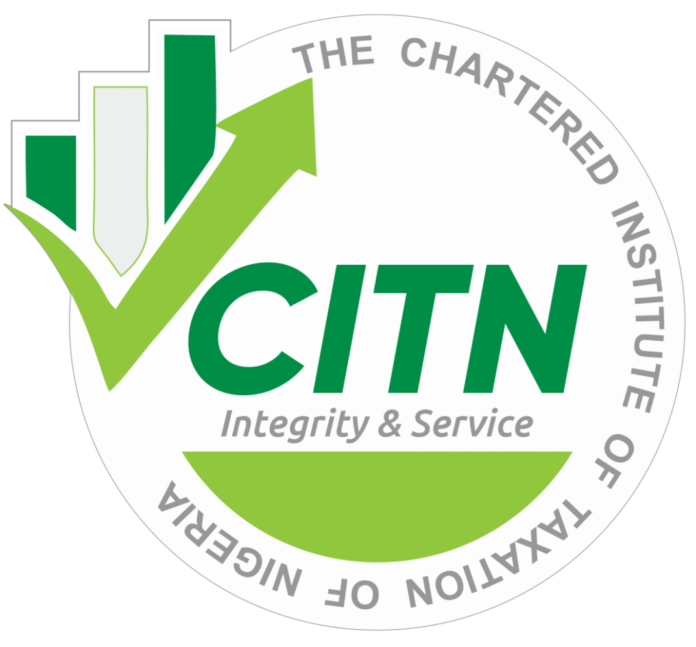The knowledge and experience that comes with training and capacity building are required for tax practitioners to give in their best in discharging their responsibilities, President, Chartered Institute of Taxation of Nigeria (CITN), Adesina Adedayo, has said.
Speaking during the capacity building workshop organized by the Institute for tax practitioners in Lagos, he said when those without the right skills and training engage in tax practices, there is every likelihood that they will get it wrong.
He said the training was a way of ensuring that tax partitioners have the right skills and knowledge to carryout their work diligently.
Speaking on Emerging Issues in Corporate Tax Fillings: Experiences of SMEs, Chairman, Abuja District & Society, CITN, Dr. Kennedy Iwundu, said it is not compulsory for the accounts submitted by Small and Medium companies with annual turnovers less than N25 million to be audited.
He said that filing of tax returns for various taxes with the tax authority is a legal obligation which must be fulfilled by every taxpayer.
According to him, a taxpayer has a duty to file tax returns as required under a specified tax law. The law specifies the type of returns, the nature of information required as well as the frequency and manner in which the returns should be filed.
On the other hand, the tax authority has the duty to facilitate the process of filing tax returns by providing a taxpayer with standardized forms, guidelines and procedures.
“Tax filing is the submission of tax returns by a taxpayer to the relevant tax authority in a manner prescribed by law and in accordance with the laid down administrative procedure,” he stated.
Iwundu said tax returns are a report prepared by a taxpayer containing information on his tax affairs for a given period for the purpose of complying with the tax laws.
He explained that minimum tax is generally computed at 0.25 per cent of a company’s annual gross turnover less franked investment income.
He said companies can enjoy a reduced minimum tax rate of 0.25 per cent, for any tax returns filed for any two consecutive accounting periods between 1 January 2019 to 31 December 2021 as may be chosen by the taxpayer.
“This rate reduction is only granted where the relevant returns are filed before the filing due dates,” he said.
He said gross turnover” means the gross inflow of economic benefits during the period arising in the course of the operating activities of an entity.
“This also includes sales of goods, supply of services, receipt of interest, rent, royalties or dividends.
A company is exempted from minimum tax if it meets any of the following conditions,” he said.
Speaking on Understanding Transfer Pricing, Deputy Director, International Tax Department, FIRS, Mrs. Olubanke, Akanni, explained that Transfer pricing” generally refers to how associated enterprises or connected taxable persons (CTPs) price tangible goods (raw materials, spare parts, finished goods, etc.); services (marketing, legal, accounting, training and etc.); intangibles (trademarks, patents, copyright and etc.); loans, guarantees; and other commercial transactions between them.
Akanni, represented by Mrs. Temitope, Olayokun, said ensuring that prices charged by associated enterprises or connected taxable persons for the transfer of goods, services and intangible property are consistent with the arm’s length principle.
According to her, the prices paid for goods or services delivered or received have a direct impact on the profits of the seller and buyer and by implication, on tax.
“Where it is cross border, the taxman becomes even more concerned because effectively any mis-pricing would mean a shift of tax base from one jurisdiction to another or worse still, to a tax haven,” she said.
Also speaking on Transfer Pricing Fillings: Essentials for Tax Practitioners, Tax Partner, KPMG, Tayo Ogungbenro, said there was need to identify connected transactions and document compliance with arm’s length rule, complete and file with FIRS annually, statutory transfer pricing returns identifying connected transactions and country-by-country report / notification.
He said FIRS has discretionary power to call for documents and response is to be provided within 21 days (extension may be granted).
He said Master File, local File and Country-by-country report are annual documentation requirements for Transfer Pricing.
“A single taxpayer may be required to file annual TP returns, CbCR, Master File and Local File. These documents must all speak a consistent message as they serve as a taxpayers first line of defense in a transfer pricing audit,” he said.
Speaking on Emerging Issues in Corporate Tax Fillings: Industry Perspective, Group Head, Strategic Tax and Compliance, Dangote Industries Limited, Dr. Titilayo Fowokan, said digitalisation of global economies including Nigeria has positively influenced tax administration as well as tax compliance management by the business owners.
“Tax compliance has graduated from conventional to technology-driven tax filings. Document management has also graduated from manual hard copy documentation to real time data management,” she said.
According to her, document archiving has migrated from storage in filing cabinets to virtual locations – ‘the cloud’.
“Tax filing processes has been digitised at federal and state levels in Nigeria, save for a few exceptions. Robustness of the technology platforms for tax filings is essential for seamless filing process,” she said.
She said investment in tax technology tools by the taxpayers is now inevitable. This, she said, is the opportunity cost of avoiding the penalties and interest related to non- compliance.



